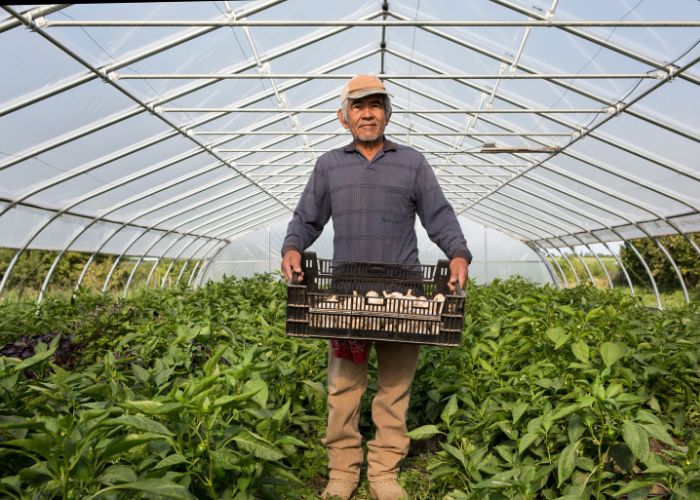MADRID – Almost everyone has noticed, that shopping has become much more expensive. However, the Spanish state appears to be one of the major beneficiaries of the increased food prices. This is done through numerous taxes throughout the production and distribution chain.
It is taxes that help increase food prices from farms to supermarkets by an average of 283%. This is shown by data from August from the monthly barometer of agricultural organisation Coag.
Increased food prices
The examples are many, with even greater increases than those mentioned above. Garlic, for example, has a price of €0.79 per kilo at the beginning of the chain, while the label in the store says almost €6.00 per kilo. The difference is 648%, as shown by the food origin and destination price index (Ipod).
The same happens with carrots or pork with a difference of 563% and 260% respectively. Why is the difference so big? This is mainly due to a large number of intermediaries and parties in the entire chain. These multiply the costs and the payments to the treasury so that the final price rises to the detriment of the consumer.
VAT on fertilisers
Already at the beginning of the chain, there are many production costs that the farmer bears. The purchase of fertilisers represents the largest part. The price of this has tripled since Russia invaded Ukraine and subsequent European Union sanctions. As a result of the tax reform, the State alone will collect an estimated €279 million for VAT on nitrogen fertilisers.
Primary sector tax
The agri-food system contributes 9% to the gross value added to the Spanish economy. It also employs two million people. Farmers and ranchers must pay the Personal Income Tax (IRPF), which taxes income and capital gains. Furthermore, it is the main tax burden they bear.
In addition, agricultural businesses must also pay corporate tax, which is levied on net profit, and VAT, which is also levied on all purchases. But because it reaches the consumer, it has a neutral tax effect on the producer.
In rural areas, farmers and ranchers also have to pay the property tax (IBI), the tax on hydrocarbons for the use of tractors and farm machinery, and taxes on electricity, plastic or economic activities.
Other taxes
However, the tax burden is not limited to production alone. Storage, transportation, distribution and consumption are the stages a product goes through from its inception in the field until it reaches the consumer’s table. According to the companies and intermediaries in the chain, tax is paid repeatedly throughout this process.
Related post: Spanish buying less but spending more in supermarkets
In transportation, among other things, taxes on hydrocarbons, registration, circulation, companies and economic activities must be paid. However, there is no doubt that in the case of distribution, taxes will again have to be paid.
In addition to the above, in regions such as Catalonia, Aragon, Asturias and Navarre, taxes are also levied on large commercial establishments. Then there are taxes on the number of fluorinated gases for refrigeration equipment; taxes on sugary drinks in Catalonia, the special tax on alcoholic drinks across the country and many others.
VAT
At the end of the chain are alcoholic beverages and ornamental plants with 21% as the highest VAT percentage. Likewise, meat and fish along with non-alcoholic drinks account for 10% of this tax. Finally, fresh products such as fruit, vegetables, milk, cheese, eggs, cereals, bread and flour are only taxed at 4%.
Call for tax cuts
Business organisations, therefore, ask the government to reduce the tax burden throughout the chain. The Spanish Association of Distributors, Self-Services and Supermarkets (Asedas) believes that “the executive branch should reduce VAT on food, abolish special taxes and postpone the entry into force of new ones, as is the case with the plastic tax”.
Something similar is required by the Spanish Federation of Food and Beverage Industries (Fiab). “In the current tense economic situation, with skyrocketing energy costs and very high inflation threatening consumption, we ask that no fiscal or regulatory measures are taken that reduce the competitiveness of the sector or households,” says the employers’ association.
Asaja has also asked to reduce the diesel and fertiliser bill by 35% and plastic by 15%. “This was something that already existed,” says Álvarez.
No comment from the government
The government has given no comment so far. It has, however, approved Royal Decree 4/2022 to mitigate the negative effects of the drought and production costs. Furthermore, in the case of diesel, there is a partial refund for professionals for tractor engines and agricultural machinery in general.


